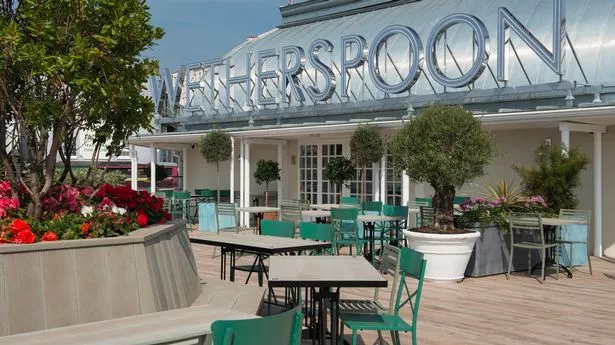Pub giant Wetherspoons has built up an army of fans. Whether it’s the firm’s good value meals or range of beers, ‘Spoons’ is doing roaring trade.
And while many locals are being forced to close, Wetherspoons has just announced that it notched up record sales, topping £2billion for the first time in is history. But the secret of its success is increasingly not from selling beer and the like.
In fact, the firm says its best-selling product on draught is not ale at all, but soft drink Pepsi. But even that is far outstripped by sales of tea and coffee. Wetherspoons cottoned on the idea of opening all-day years ago, making use of its pubs when others weren’t open. It is one reason why many of its pubs are busy at breakfast.
But the popularity of Pepsi, as an example, taps into a wider trend for people switching to low alcohol or alcohol-free beers. The soaring demand for weaker beers has been fuelled by concerns over excess drinking and drink drive laws. Habits are also changing, with 39% of young people surveyed by YouGov saying they drank no alcohol at all.
“The reality is that products sold in pubs have radically changed in recent decades,” said Tim Martin, the chain’s founder and chairman. Another trend has been a big shift to drinking at home. In the early 1980s, the on-trade - including pubs - accounted for about 90% of beer sales. That dropped to around 50% before the Covid pandemic and is now about 40%.
Mr Martin blamed the slump, in part, on pubs paying 20% VAT on food sales whereas for supermarkets it is nothing. It comes after Labour were forced to deny reports it was considering curbing pub opening hours. Mr Martin said: “The effect of reducing pub opening times would certainly further reduce on-trade consumption, but that reduction is likely to be replaced by ‘off-trade’ consumption at home and in other ‘unregulated’ environments.
“Among the advantages of the on-trade, linked to regulation, are that consumption is supervised by trained licensees, police and local authorities, in many cases including CCTV coverage of premises, and so on. “This does not mean that pubs are invariably oases of tranquillity but, in general, pub behaviour is good and pubs are valued by communities.”
Mr Martin also criticised a “slightly daft” suggestion to serve beer in two-third pint measures. A study published last month by Cambridge University academics called on the Government to stop serving beer in pints, but consider using two-third glasses, also called schooners.
Mr Martin said the use of schooners in Australia did not relate to “any noticeable reduction in consumption”. JD Wetherspoon started with one pub in 1984, when it notched up sales of £818,000 and made a £7,000 loss. Last year’s rise in sales came as profits jumped from £42.5million to £73.8million.
The chain’s pub numbers fluctuate over time, but fell from 826 to 800 last year. The chain’s “best estimate” is that will get back to around 1,000 pubs - having peaked at 951 in 2015. New pubs this include one at holiday park chain Haven’s site in Filey, North Yorkshire.
Staff at Wetherspoon also bagged £49million of bonuses and free shares last year, of which 96.5% went to staff below board level and 86.3% to those in our pubs.
